Diversity at AMBS

Anabaptist Mennonite Biblical Seminary educates followers of Jesus Christ to be leaders for God’s reconciling mission in the world.
It is our vision to make theological education accessible to diverse Christians to reflect more fully God’s purposes of justice and reconciliation.
At AMBS we welcome, educate and equip for ministry all who join our learning community, regardless of age, race, religion, physical disability, national or ethnic origin, gender identity, or sexual orientation. In addition to our statement of Values for our Work and Life Together, we are guided by the following commitments and policies.
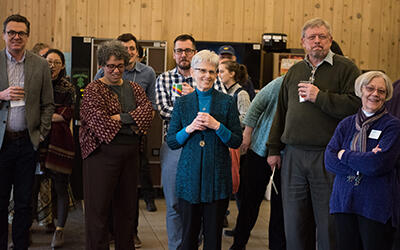
Grounded in our Anabaptist identity, at AMBS we extend hospitality to students across a theological spectrum to learn together what Anabaptist history, theology and approaches to Scripture can offer to a fractured and complex society. In our classrooms, we commit ourselves to welcome the insights that come from our rich diversities, to authentic interaction and to the hard work of giving and receiving respectful challenge. Our classroom covenant and inclusive language policy guide our teaching and learning.
At AMBS, we have designed options for degree programs and lifelong learning offerings that make theological education accessible in a variety of formats: in person, online, on location and in combinations of the above. Teaching faculty members are supported in developing expertise with technology and inclusive pedagogical practices for each format.
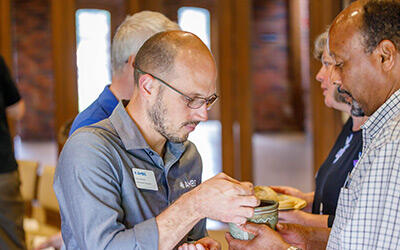
Commitment to Anabaptist Mennonite Biblical Seminary’s mission and support of its Anabaptist and ecumenical vision are essential. AMBS does not discriminate against employees or candidates for employment on the basis of race, sex, color, national origin, age, disability, sexual orientation, gender identity, or any other legally protected status. For current available positions,visit the job openings area.
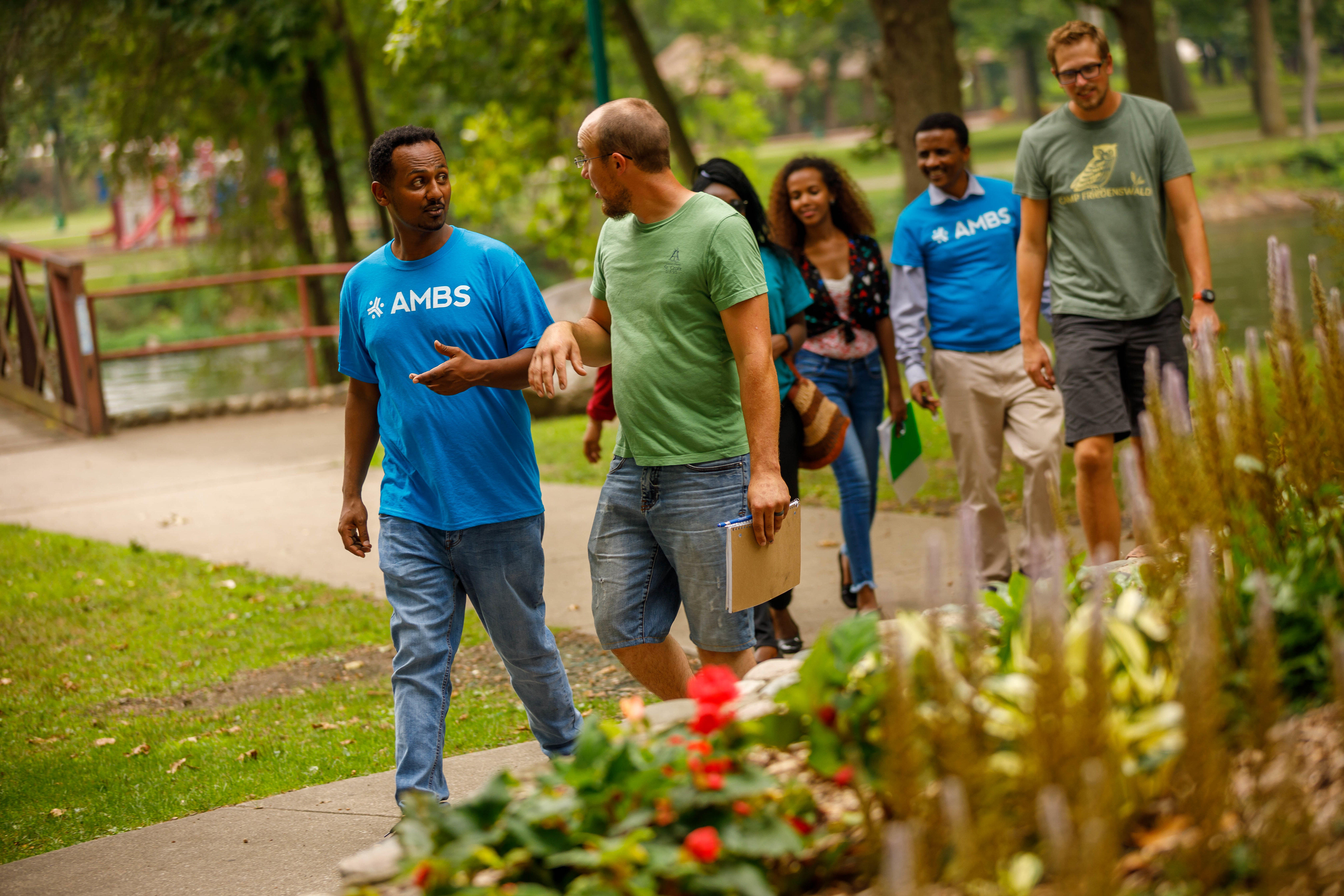
AMBS is committed to dismantling barriers to equality within the seminary and the communities where we live and serve. As part of this commitment, AMBS will make decisions regarding admission to study at AMBS without discrimination on the basis of age, race, religion, physical disability, national or ethnic origin, gender, or sexual orientation. For more information, visit the admission details.
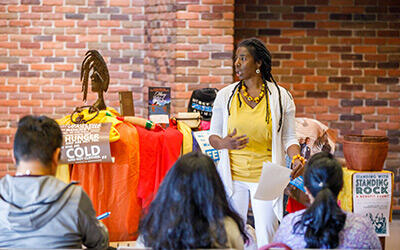
AMBS appoints an ICUR coordinator and team to lead our learning community in intercultural competence and resisting racism. This work is lived out using a intersectionality framework and is both interpersonal and systemic in nature. In addition to advocating for changes in policies and practices, the ICUR team helps people become effective advocates for justice and compassionate agents of reconciliation across the dividing walls of hostility. Learn more about the ICUR team.
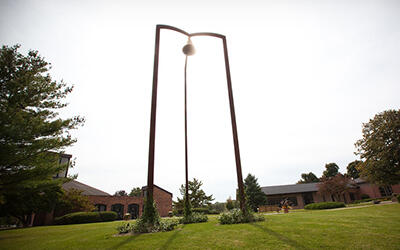
AMBS does not discriminate in its educational policies, programs, activities or environment on the basis of sex. Sexual discrimination, harassment and violence are strictly forbidden among all AMBS employees, students, housing residents, campus visitors, board members, internship supervisors and others who do business with AMBS. See our full Sexual Misconduct Policy for details.
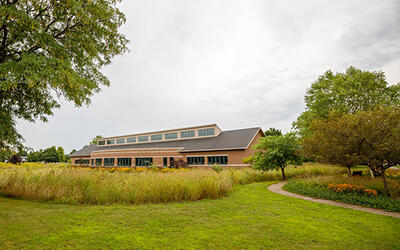
AMBS’s mission is to prepare its students for the vocation of ministry in the world that God loves. AMBS aims to provide equal access to all programs, through reasonable accommodations for all qualified students with visible and invisible disabilities. The Disability and Accommodations Policy at AMBS provides a framework for ensuring access and participation by those who experience barriers related to disability.
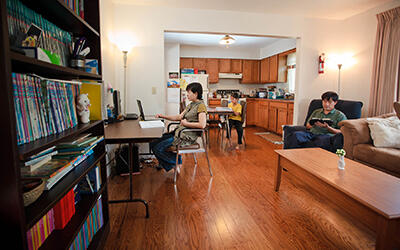
Our campus apartments and guest housing options include units that are ADA-accessible. Campus housing is available to single individuals, to single adults sharing 2-3 bedroom apartments, to married couples, and to families. Find more on our housing page.
"I believe that AMBS is the kind of learning community where everyone who wants to study the Scriptures and be equipped for service in the reign of God can thrive. It isn’t easy or straightforward to foster that kind of community, But if God is for us it must be possible to grow in our ability to reflect God’s love more perfectly." — David Boshart, Ph.D., President
From the Vice President and Academic Dean“At AMBS I see the faculty’s dedication to rigorous and transformative theological training that illuminates the gospel of Jesus Christ as the gospel of peace, challenges colonialism and patriarchy, and seeks to dismantle the harmful effects of the Doctrine of Discovery. I see an intense desire among our administrators, faculty and staff to learn from the global Anabaptist story and from the wisdom of our siblings in the worldwide church. I see a place that extends hospitality to students across a theological spectrum to learn together what Anabaptist history, theology and approaches to Scripture can offer to a fractured and complex society.” — Beverly Lapp, Ed.D. |
AMBS Conversation Covenant“In our learning community at AMBS, we strive to create an ethos that fosters reconciling relationships so we are prepared for conflict’s inevitable appearance in our classrooms and relationships. Frank, confident and trustful conversation is an essential part of our common learning as we engage in conversations that can be animated and enriching, and at times difficult or disturbing. To these conversations we bring the length and breadth of our assumptions, hopes, opinions and certainties into the formative power of Christian faith. Rather than avoid the issues around which passion and disagreement reside, we commit ourselves to remain in conversation with one another despite our differences as part of our calling as disciples of Jesus Christ (cf. Acts 15).” — Approved February 2015 |
